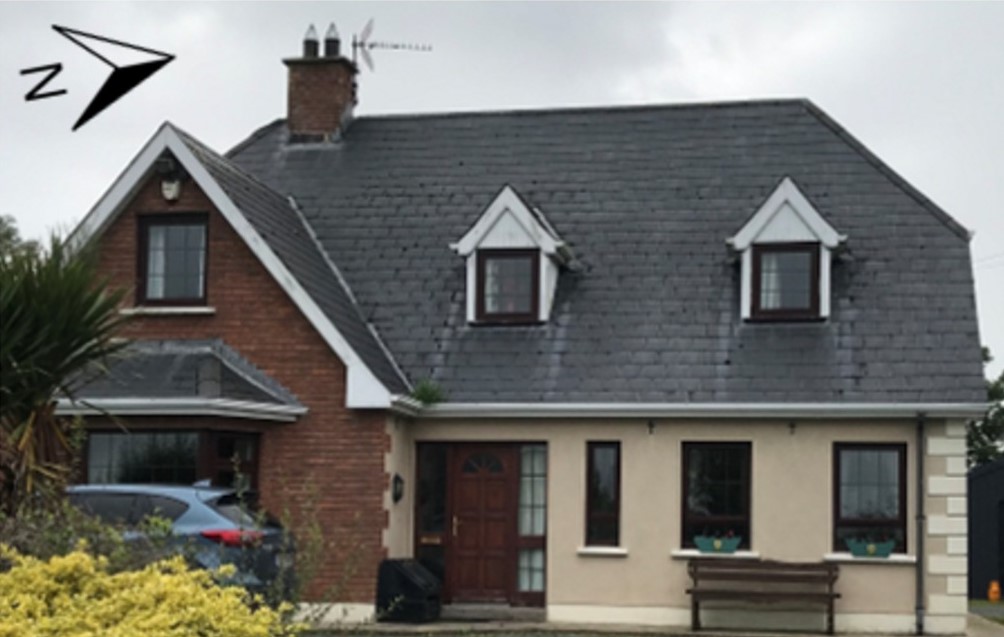An international research group investigated hybrid heat pumps (HHPs) as a technically and economically feasible solution to decarbonizing heat supply in old residential buildings and found that it may achieve slightly higher energy savings than electric-only heat pumps (EHPs).
The scientists described an HHP as a system combining an electrically driven air-to-water heat pump with a gas-condensing boiler (GB), and said these devices would be particularly suitable for older dwellings equipped with high-temperature heat emitters.
“During the coldest weather periods, when greater heating loads occur together with associated poorer EHP performance, HHPs offer the possibility to switch to GB mode, which may be more favorable in such conditions,” they explained, adding that HHPs usually operate in EHP mode when the external temperature exceeds 3 C. “The use of the GB mode may also offer certain advantages over EHP mode when domestic hot water (DHW) is required, often at temperatures exceeding 50 C.”
Using an energy simulation model, the group analyzed the performance of an HHP in a residential building retrofit scenario involving both the heating system and the building envelope. It then compared the performance of the HHP with that of a reference EHP and fossil fuel heating systems under different envelope retrofit measures and operational boundary conditions.
They validated the model in a south-facing house located in Dublin. It was built in 1999 and retrofitted with low-temperature aluminum radiators between 2014 and 2015. The building has a floor area of 160 m2, a floor height of 2.5 m, and a total external wall surface area of 139 m2.
They considered three different retrofit scenarios: a base case scenario taking into account the original construction; a minimal retrofitting scenario based on the retrofit implemented between 2014 and 2015; and a deep retrofit scenario assuming that the building is renovated according to the current Irish national guidelines. “For all scenarios, the heating system was normally operated so as to maintain an average internal temperature of 20 C with a 0.5 C dead band at all times,” they specified.
Popular content
They conducted their analysis assuming an HHP combining an 8 kW electrical heat pump with a 33 kW gas boiler. It can operate in three different modes: 1 – When the external temperature is below 2 C the gas boiler provides the entire thermal load; 2 – When the external temperature is over 2 C the electrical heat pump provides the entire thermal load; 3 – The heat pump and the gas boiler operate together when the external temperature is over 2 C and the required water temperature is over 45 C.
Their simulation considered oil, natural gas, and electricity prices at €0.088($0,095)/kWh, €0.069/kWh, and €0.21/kWh, respectively.
The researchers found that all hybrid heat pump scenarios achieved slight energy savings compared to the respective electric heat pump scenarios. They also ascertained hybrid systems were competitive in terms of carbon emissions per unit floor area. “Between 41% to 80% of the heating system capital cost can be recovered for all scenarios with reference to an oil boiler system,” they stated, noting that the economic performance of HHPs is strictly dependent on electricity and gas prices.
They presented the novel heat pump concept in the study “Technical and economic assessment of a hybrid heat pump system as an energy retrofit measure in a residential building,” published in Energy and Buildings. The research group comprises academics from the Dublin City University and the University College Dublin in Ireland, as well as from the University of Sassari in Italy.
This content is protected by copyright and may not be reused. If you want to cooperate with us and would like to reuse some of our content, please contact: editors@pv-magazine.com.



2 comments
By submitting this form you agree to pv magazine using your data for the purposes of publishing your comment.
Your personal data will only be disclosed or otherwise transmitted to third parties for the purposes of spam filtering or if this is necessary for technical maintenance of the website. Any other transfer to third parties will not take place unless this is justified on the basis of applicable data protection regulations or if pv magazine is legally obliged to do so.
You may revoke this consent at any time with effect for the future, in which case your personal data will be deleted immediately. Otherwise, your data will be deleted if pv magazine has processed your request or the purpose of data storage is fulfilled.
Further information on data privacy can be found in our Data Protection Policy.